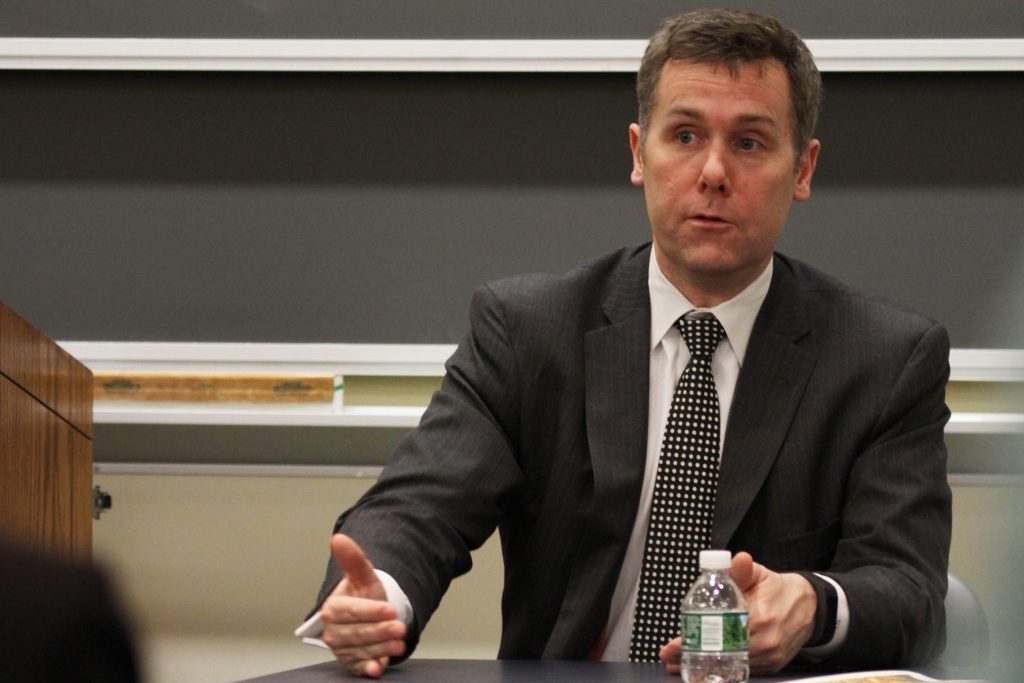In 1998, the US State Department held the Washington Conference to determine how to address the issue of Nazi looted art. Member institutions of the Association of Art Museum Directors subsequently began to look to the history of their collections and to consider the possibility of Nazi origin. As a member institution, the Clark Art Institute in Williamstown, Mass., launched its own research efforts.
And that’s where Nicholas O’Donnell ’03, who had majored in art history at neighboring Williams College, got his first taste of “detective” work in the art world. Prior to law school, he worked at the Clark, where he gained exposure to art restitution.
O’Donnell, a partner at Sullivan and Worcester in Boston, visited BC Law on March 15 to discuss his career in art law as part of the Art Law Society’s speaker series. A member of the Art Law Committee of the New York City Bar Association, he is also the editor of the Art Law Report, a news and commentary blog dealing with legal issues in the museum and visual arts communities.
Though this conversation about restitution began nearly two decades ago, recovery efforts are still under way, with O’Donnell at the forefront of many Nazi-era art cases, such as his pending claim against the Republic of Germany for the return of pieces belonging to the Guelph Treasure.
This collection of German artwork, dating to the 12th century, contains multiple medieval religious objects, including devotional items such as reliquaries. The pieces in dispute were acquired in 1929 by a consortium of three Jewish art dealer families in Frankfurt, Germany. Under pressure from the Prussian government and orders from the Nazi regime, the families were forced to sell much of the art to the Prussian state in 1935. Three of the four dealers later fled Europe amidst increasing anti-Semitic persecution, and their descendants, now living in the United States, filed this restitution claim.
After the end of World War II, artwork restitution efforts focused on returning artwork to its country of origin. The art was acquired in many cases by state collections with the goal of preserving the cultural heritage that was disrupted under Nazi rule. However, families like the Guelph Treasure dealers were deprived of their artwork as a result, creating the necessity to assert their rightful ownership.
In the present Guelph Treasure case, O’Donnell said, Germany has moved to dismiss the claims, asserting that the artwork was rightfully restored to the Prussian people.
O’Donnell has since responded to this motion, and remains hopeful that the Guelph Treasure will be restored. When asked to share the key to success in art law, O’Donnell simply replied, “Tell your client’s story.”


